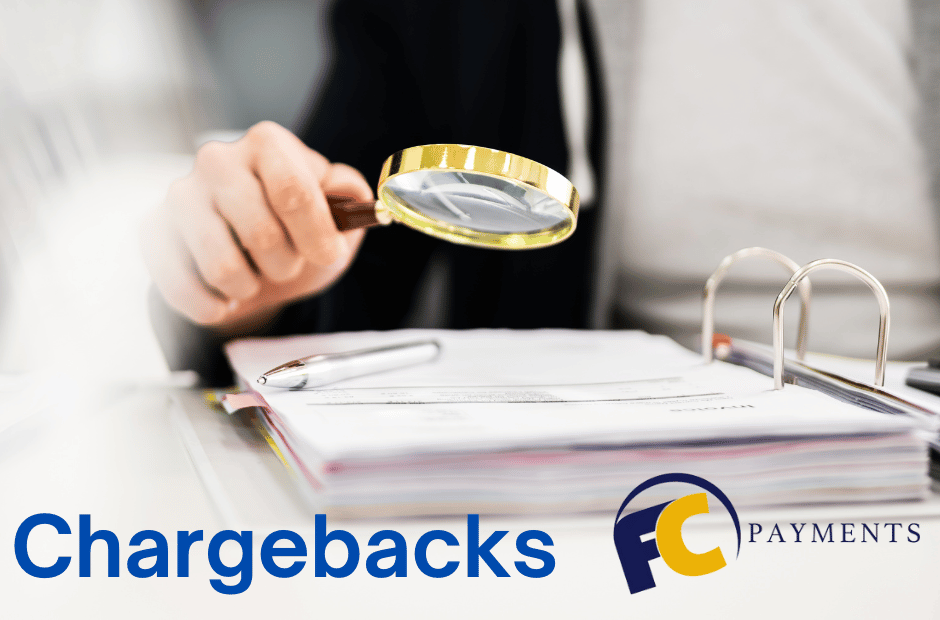
Debt Relief: 5 Ways a Chargeback be Denied & What Does That Mean?
This article was published on January 10, 2020 and last updated on April 28, 2023.
It is every merchant’s nightmare to be notified of a chargeback from a dissatisfied consumer. Aside from the potential loss in revenue, a high chargeback ratio could also put your business at risk for not being offered a high risk merchant account from payment processors or a business loan. So can a chargeback be denied, and can a business win this dispute? Yes, and in this article we will detail under what circumstances a chargeback can be denied.
According to an estimate, globally half of the customers will go for chargebacks. Thanks to the growing trend, we are going to discuss some of the cases where a chargeback can be denied. But the good news is, while it’s hard to completely get rid of chargebacks, the bank can still deny them for the following reasons:
| Reason | Summary |
|---|---|
| 1. Time Limit for Filing | Credit card companies have different time limits for filing chargebacks. Late filings may result in chargeback denials to protect merchants from fraud. |
| 2. Cardholder Lies or Commits Fraud | If a cardholder lies or attempts to commit fraud during a chargeback, the credit card company may cancel the chargeback and re-bill the purchase. |
| 3. Cardholder Bypasses the Merchant | If a cardholder bypasses the merchant and goes straight to the bank, the chargeback may be denied or suspended until the merchant can answer with a dispute. |
| 4. Proof of Receipt | Both consumers and merchants must provide proof of their claims. If a consumer cannot prove receipt, the merchant might be able to get the chargeback denied. |
| 5. Inaccurate Date | Providing accurate and specific dates for events related to the chargeback can improve the chances of a successful claim. |
| 6. Cardholder Lacks Documentation | If a cardholder lacks proper documentation to support their chargeback claim, the chargeback may be denied. |
#1 The Cardholder Reached His Time Limit for Filing

Those who file during the latter half of their time limit are usually denied due to too much delay in informing the bank of the unauthorized transaction or dissatisfaction with a product. This is because credit card companies also want to protect merchants from fraud activities, which happens when someone uses a product and demands a chargeback just to get his money back.
#2 The Cardholder is Attempting to Lie or Commit Fraud

Credit card companies deal with chargebacks on a daily basis, so they can already tell if a cardholder is lying about the reason for their chargeback or if he is attempting to defraud the credit card company or merchant.
If this happens, the lender will not think twice about canceling the chargeback and billing the purchase back to the cardholder’s account. Merchants are also given the chance to prove that the transaction is legitimate and a chargeback isn’t necessary.
Merchants can protect themselves from fraudulent chargebacks by maintaining thorough records of all transactions, including tracking information for shipped items, customer correspondence, and any proof of service delivery. By providing this documentation during the chargeback dispute process, merchants can help demonstrate the validity of the transaction and increase the likelihood of a chargeback denial in cases of fraudulent claims.
#3 The Cardholder Bypasses The Merchant

In a lot of instances, chargebacks should’ve never happened in the first place. When a consumer notifies a merchant, there’s a good chance that a refund will be given if the reason is legitimate and a chargeback doesn’t need to be filed.
But if a consumer chooses to go straight to the bank hoping to put pressure on the merchant for repayment, this could raise suspicions of fraud.
A well-prepared and persuasive rebuttal, along with supporting documentation, can lead to a chargeback being denied. For more information on chargeback management and prevention, visit First Card Payments.
#4 Proof of Receipt

This can include diligent record-keeping, clear communication with customers, and using secure payment processing methods. Keeping your business accounts in order will help you get chargebacks denied.
#5 Don’t Forget The Date
Be specific when it comes to the date of the event it happened. If you don’t remember the exact date, then state an estimated date. The more specifics you can add about the date of the event, the better it is.
#6 Cardholder Lacks Documentation

Such documentation may include receipts, proof of delivery, email correspondence, photographs of damaged products, or other relevant information that substantiates the cardholder’s claim. In some cases, the credit card company may request additional documentation or clarification from the cardholder to determine the legitimacy of the chargeback. Providing thorough and accurate documentation can significantly improve the chances of a successful chargeback and avoid a chargeback denial.
The Bottomline: Can A Chargeback Be Denied?

This is why it pays to be extra smart with your strategies, especially when it comes to accepting payments. Start by working with a trusted payment processor that could help you streamline transactions and detect faults before they get worse.
Find more chargeback prevention tips, and learn about your rights as a business owner of a high risk merchant account for debt relief.
In your case will a chargeback be denied? You can work hard to avoid that.
I am passionate about delivering results and helping my clients succeed. With my expertise in SEO, branding, and marketing, I lead the agency’s efforts to create and implement effective strategies that drive business growth. Our all-inclusive approach sets us apart from other digital media companies and ensures that our clients receive the full range of services they need for online success. If you can think of it, we can build it!
Zulu Shack Creative team members thrive on momentum. Like Zulu warriors, we strive to spearhead your idea with speed and quality.
When I’m not helping my team implement new digital marketing strategies, I enjoy playing music, hosting poker nights, reading Stephen King novels, and spending time with my wife and baby daughter.
No Comments
Sorry, the comment form is closed at this time.



